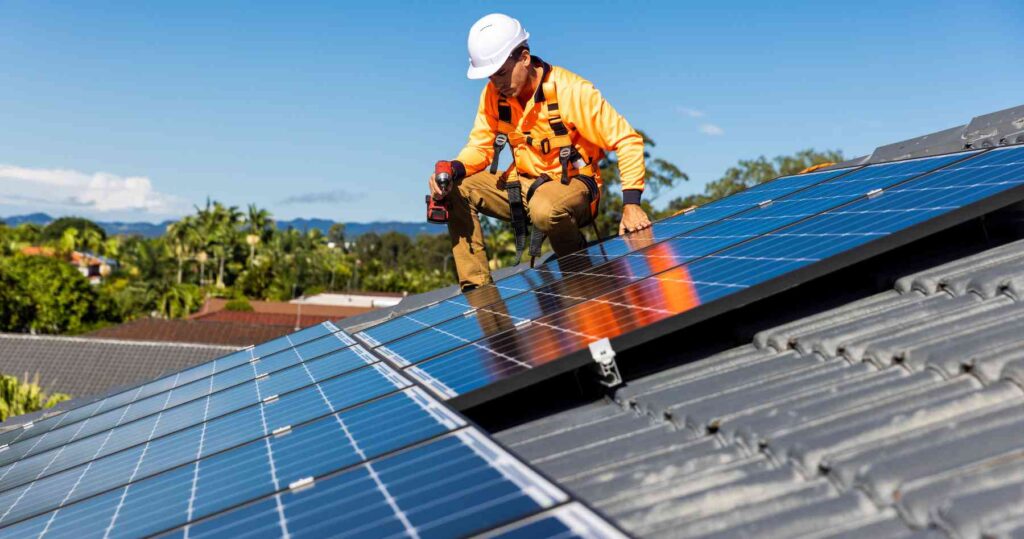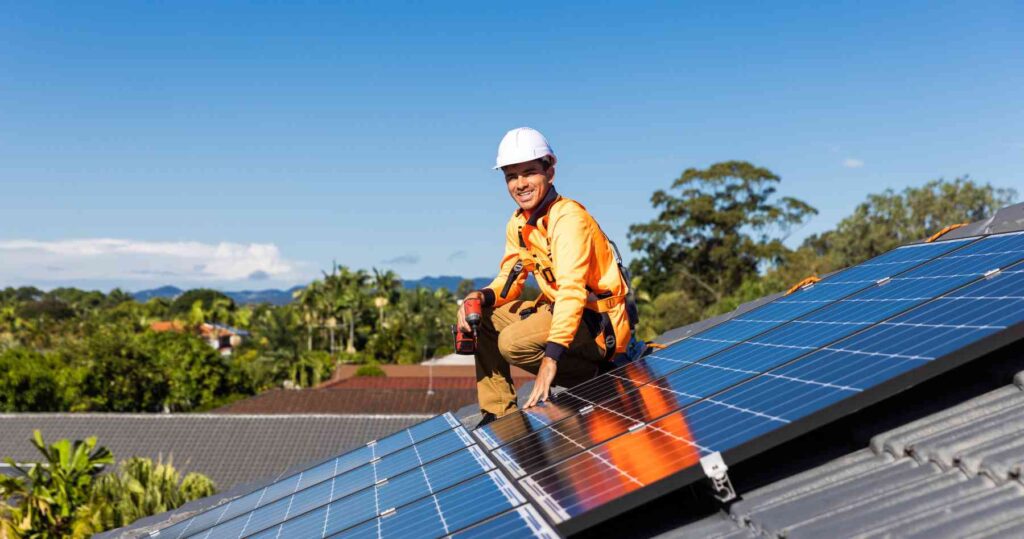Solar Energy Unleashed: Solar Panel System Sizing
Are you ready to take the plunge into the world of sustainable, eco-friendly energy? The sun, a powerful and infinite source of energy, is waiting to power your home and reduce your carbon footprint. But before you can bask in the glory of solar energy, you need to understand how to size your solar panel system effectively. This comprehensive guide will unravel the intricacies of “How to Size Your Solar Panel System,” helping you make an informed decision that not only reduces your energy bills but also contributes to a greener planet.
The Basics of Solar Panel System Sizing
Sizing your solar panel system is the foundation upon which your solar energy dreams are built. It’s all about ensuring your solar panels can generate the right amount of power to meet your energy consumption. Let’s kick things off by discussing the primary equation:
Solar Panel Size (kW) = Daily Energy Consumption (kWh) / Sunlight Hours
This formula serves as your guide to determine the size of your solar panel system.
The Art of Solar Panel Sizing
Solar panel sizing isn’t as simple as plucking numbers from thin air; it’s a detailed process that considers various factors to maximize your system’s efficiency and effectiveness. Here’s a step-by-step breakdown:
Assess Your Energy Needs
The first critical step is to assess your household’s energy consumption. Dive into your energy bills and understand your average daily usage. Remember to account for seasonal variations, as your energy needs may fluctuate.
Analyze Sunlight Hours
The number of sunlight hours varies based on your location and the season. It’s essential to know how many peak sunlight hours your area receives on average. This information is vital for an accurate panel size calculation.
Determine Your Location’s Solar Resources
Different regions receive varying levels of sunlight. Solar maps, readily available online, can help you understand the solar potential of your geographic location. This data is crucial for sizing your solar panel system accurately.
Selecting Solar Panels
Choosing the right type of solar panels is crucial for optimizing energy production. Different panels have varying efficiency levels. Ensure your panel choice aligns with your location’s solar resources for the best results.
Consider Inverter Efficiency
Solar inverters are responsible for converting the direct current (DC) power generated by your solar panels into the alternating current (AC) power your home uses. Select an inverter that complements your chosen panels and enhances overall energy production.
Allow for Future Growth
Think ahead. Your energy needs may change over time, so plan for future growth. Solar panel systems are long-term investments, and a well-thought-out expansion strategy can save you both time and money.
Consult a Professional
If you find the above steps daunting or need more assistance, don’t hesitate to consult a professional solar panel installer. These experts can design a system that maximizes efficiency and ensures your investment pays off.
Enjoy The Peace Of Mind And Safety Of A MASTER Electrician...
Solar Panel Sizing
Is solar energy suitable for my home?
Solar energy is a viable option for most homes, provided they receive a sufficient amount of sunlight. To confirm if your home is a good candidate for solar panels, consult with a local solar expert.
How do I determine the number of solar panels I need?
The number of panels you need depends on your energy consumption and the sunlight your location receives. Use the formula mentioned earlier to calculate the exact number.
What happens if my solar panels generate excess energy?
In many cases, you can sell excess energy back to the grid or store it in batteries for future use. However, the specifics vary based on your location and setup.
What is the typical lifespan of solar panels?
Solar panels can last 25-30 years or more with proper maintenance. They usually come with warranties that guarantee performance for a specified period.
Should I clean my solar panels regularly?
Yes, regular cleaning is essential to maintain maximum efficiency. Dust, dirt, and debris can reduce a panel’s energy production. It’s a simple but vital maintenance task.
Are there government incentives for solar panel installation?
Many governments offer incentives, tax credits, and rebates to encourage solar panel installation. Check with your local authorities to see if you qualify for any of these programs.
Maximizing the Potential of Solar Energy
As you delve into the world of solar energy, remember that sizing your solar panel system is just the beginning. With the right-sized system, you can reduce your carbon footprint, cut energy costs, and gain energy independence. Solar power is a sustainable and forward-thinking choice that can transform the way you power your home.
Now that you’re armed with the knowledge you need, take the first step toward a greener future by sizing your solar panel system accurately. Harness the incredible power of the sun and enjoy the countless benefits it has to offer.


Additional Tips for a Successful Solar Journey
Optimize Your Roof
Ensure your roof is structurally sound and can support the weight of solar panels. Additionally, consider the orientation and angle of your roof for optimal sunlight exposure.
Monitor and Maintain
Regularly monitor your solar panel system’s performance. If you notice any drop in efficiency, address it promptly. Maintenance ensures your system continues to operate at its best.
Explore Battery Storage
Invest in energy storage solutions like batteries. They allow you to store excess energy for use during cloudy days or at night, increasing your self-sufficiency.
Understand Net Metering
Net metering allows you to earn credits for the excess energy your system generates and feeds back into the grid. Familiarize yourself with your local utility’s net metering policies.
Environmental Impact
By embracing solar energy, you’re reducing your carbon footprint and contributing to a cleaner environment. Share your eco-friendly journey with friends and family to inspire them to make the switch.
Financial Benefits
Solar panels not only reduce energy bills but can also increase the value of your home. They are a long-term investment with both economic and environmental advantages.
Sizing your solar panel system is a fundamental step in transitioning to sustainable and renewable energy. By understanding the intricacies of “How to Size Your Solar Panel System,” you ensure that your investment is efficient and effective. Whether you aim to reduce your carbon footprint, save on energy costs, or achieve energy independence, solar power is a choice that aligns with a greener, more sustainable future.
With the information and insights provided in this guide, you’re now equipped to take the first step toward a brighter, more eco-friendly tomorrow. Sizing your solar panel system is an art, and you’re the artist. Embrace the sun, reduce your environmental impact, and enjoy the myriad benefits that solar energy offers.
